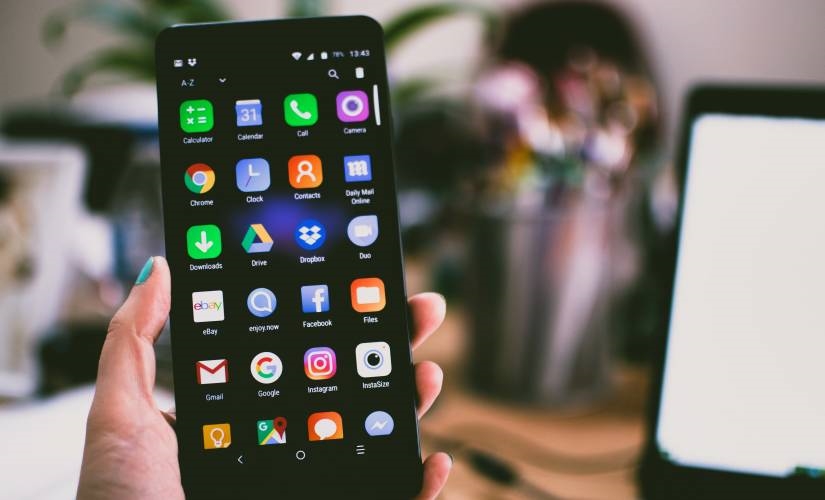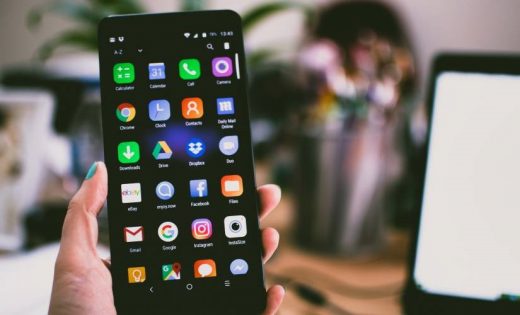Things You Need to Know About Mobile Applications
Things You Need to Know About Mobile Applications

Back in the 20th century who would have thought that everything will be available on just a touch of your finger and now when the world runs on mobile, it’s high time that you should too? From services to marketing to businesses, mobile applications are ruling over every sector and to cope with the ever growing, fast-paced era you need to get along with mobile applications.
To put in simpler words, whether you are looking for games to play, knowledge to deliver or services to get your first thought is to look for an application that suits your needs and needless to say that mobile applications have become an integral part of our lives.
The statistics here are proof that at least 51 percent of the total world population opens mobile applications daily for various requirements.
Let us now know in depth about mobile applications, types, and development cycle.
What do you mean by a mobile application?
A mobile application is generally software that is designed to run seamlessly on mobiles that can be directly downloaded to your Smartphone or tablets, unlike web apps that run on web browsers, via apple store (ios) or Google play (android). They provide assistance for emails, payments, calendars, gaming and varied other needs of the customer. Depending upon the developer, these applications can be free to download and use or paid where the profit splits between application creator and the distributor.
As of in 2019, major application providers are:
-
Google play: for android devices
-
apple’s app store: for ios devices (iPads and iPhones)
-
Amazon’s app store: for Amazon fire devices (Amazon Kindle )
Types of mobile application
Mobile applications can be mainly categorized into three types:
-
Native apps
-
Hybrid apps
-
Web apps
These three types of applications differ from each other at various points and you can choose one for yourself depending upon the type of work you are putting them to use.
We will here understand the differences between them:
-
Native apps:
If we refer to anything as native it is understood that it belongs to a specific place, hence, native apps are those apps which are specifically developed for an operating system and cannot be used on other platforms. For example, if an application is developed for ios it can’t be used on an Android device.
The advantage of such an app is a great user experience and good performance as developers use native device UI. Along with this, you also benefit from wide access to API’s and make great use of all the Applications from a particular device.
-
Hybrid apps:
Hybrid apps are called such, as they are the combination of both native apps and web apps. These applications are built using multi-platform web technologies like react native, sencha touch or HTML5, CSS, and Javascript, etc.
They are mainly made to support web and native technologies across different platforms and this accounts for its major advantage. Apart from this, these apps possess the pros and cons of both native and hybrid apps.
-
Web-based apps:
These apps are usually written in a coded language like HTML5, CSS or javascript. They need a browser to run and a good internet connection for proper functioning. The advantage of these apps is that it requires minimum storage as compared to native and hybrid apps and you can get the data from any device via the internet.
How is a Mobile application developed?
These days where everything is just a touch away, a mobile app is the basic need of every business and enterprise. To build their businesses, gain profits and grow among the customer’s people are turning towards top mobile application software companies. Hence, the business tycoons do not leave any stone unturned and hire the best mobile application Development Company to fulfill their application development needs.
Any mobile app development comprises of different steps that govern the final product. Here is a stepwise guide to mobile application development lifecycle:
- Concept/idea: to develop an app there needs to be a concept about how and what is the need of that particular application. A detailed and refined specifications document is prepared to understand requirements.
- Functional Design: a sketch is prepared on how will the app look and wireframes are created for each screen. Assessment of user interaction with the app and adding graphics, tools, etc. is done at this stage.
- Development: at this stage, the app is made properly functional based upon what platform it is being developed for. Codes are added and functionality is provided to the applications.
- Testing: after developing the apps, every app is tested for quality, design, use, glitches, and bugs that are fixed before the final launch. Testing can be of two types: automated testing and manual testing.
- Launch: after the final testing, the app is launched to its respective platforms and is further maintained and updated at regular intervals to avoid any downgrade of application.
Future of mobile application
The future of mobile application seems pretty promising as well because, in the upcoming times on-demand apps will witness a great rise as food, services, shopping, etc. everything will be done with the help of applications.
Today, where time is money, instant messaging apps will also show a significant raise as they allow simple yet effective means of interaction without putting in a lot of time or effort. Chatbots will bring in more customer engagement and give better support to the visitors which can be converted into potential clients.
And the final word…
As we seem to be blending in with the mobile applications, a need of developing a better and bigger application is also increasing every second because every little thing is depending upon mobile application may it be food, home services, payments or shopping.
So, if you haven’t been a part of a mobile application already, now is the time to get along with the latest and flourishing trend and get yourself digital.
The post Things You Need to Know About Mobile Applications appeared first on ReadWrite.
(8)


